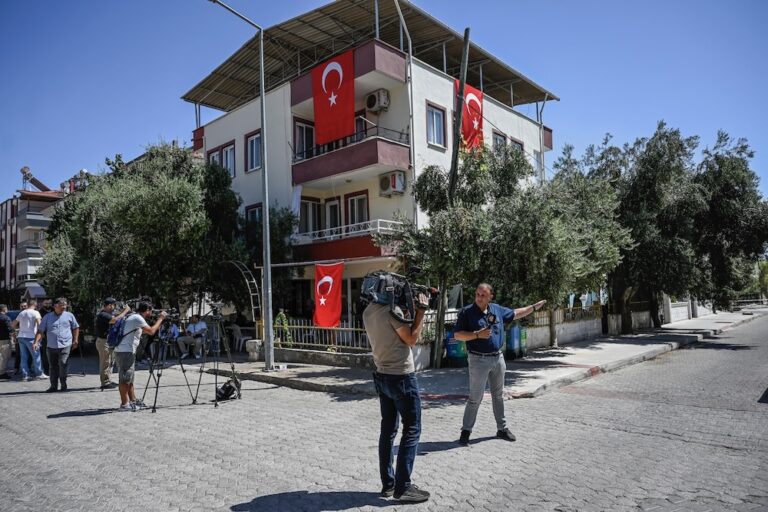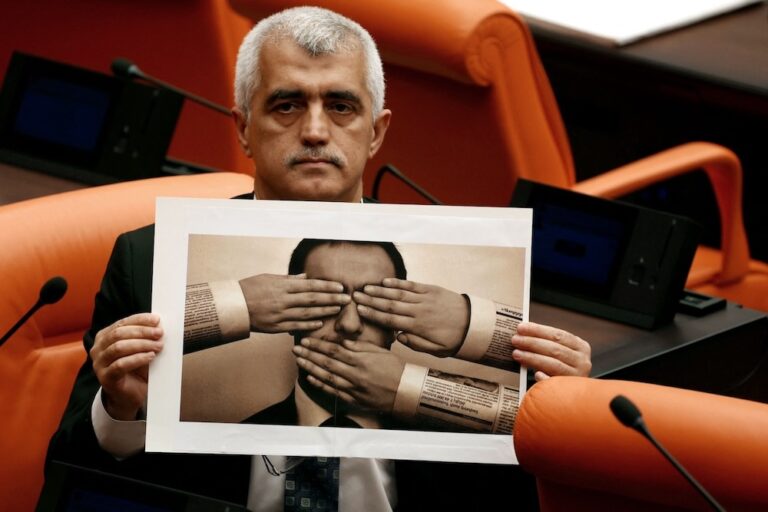(RSF/IFEX) – Reporters Without Borders gave a cautious welcome to Prime Minister Recep Tayyip Erdogan’s comment on novelist Elif Shafak’s 21 September 2006 acquittal on a charge of “insulting national identity,” in which Erdogan spoke of amending the article of the criminal code that allowed her to be prosecuted. “We hail this first step and […]
(RSF/IFEX) – Reporters Without Borders gave a cautious welcome to Prime Minister Recep Tayyip Erdogan’s comment on novelist Elif Shafak’s 21 September 2006 acquittal on a charge of “insulting national identity,” in which Erdogan spoke of amending the article of the criminal code that allowed her to be prosecuted.
“We hail this first step and we call on Ankara to turn these words into action,” the press freedom organisation said. “Everything must be done without delay so that Turkey’s laws evolve in line with Europe’s. This acquittal comes in the run-up to the publication of a European Commission report on Turkey’s legislative progress on 8 November. We hope the approach of this deadline will encourage the Turkish authorities to move in the right direction on this issue.”
The criminal code’s article 301 is incompatible with freedom of expression, above all because of its vague wording, Reporters Without Borders added. It has been used over and again to prosecute journalists and writers. With its possible three-year prison sentence, it has become a constant threat hanging over intellectuals and it is clearly designed to deter them from writing freely.
Shafak, 35, was acquitted just minutes after her trial began on 21 September in Istanbul amid considerable media attention. The prosecution was prompted by comments made by one of her characters in her recent novel “The Father and the Bastard” (“Baba ve Pic”) about the massacre of Armenians under the Ottoman Empire during the First World War.
The prime minister told Reuters on 21 September: “Let’s sit down and discuss this [with the opposition parties]. We have to forge a consensus [on changing the law].”


